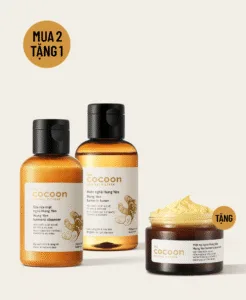New
The Timeless Appeal: Vegan Beauty as a Bridge to Vietnamese Tradition
In an era defined by rapid change, the global beauty industry is looking for something enduring. The answer, for many, lies in the growing trend of vegan cosmetics, a movement that champions products free from all animal-derived ingredients. This ethical choice is reshaping consumer habits and product development worldwide. However, for Vietnam, this “new” trend is a timeless tradition, a philosophy of beauty that has been practiced for centuries.
This comprehensive article explores the timeless appeal of vegan beauty as a bridge to Vietnamese tradition. We will delve into how the modern movement is not a foreign import but a natural extension of a culture that has always sourced its beauty from nature. We will examine the core principles, the key ingredients, and the cultural context that make this confluence so powerful and compelling. This is a story of how a modern ethical choice can be a path back to a rich and beautiful heritage.

Beauty from the Earth: The Foundation of Vietnamese Traditions
For generations, Vietnamese women approached beauty with a deep sense of reverence for nature. They understood that the most effective and gentle remedies were those that came directly from the land. This philosophy was not driven by a formal ethical code but by a practical and intuitive understanding of the healing properties of plants.
This approach was inherently vegan. The absence of animal-derived ingredients was a natural consequence of a beauty culture that valued purity, simplicity, and a harmonious relationship with the environment. Women and herbalists learned through observation and experimentation which plants were best for which conditions, creating a body of knowledge that was passed down through generations.
Key Ingredients and Their Cultural Significance:
- Rice (Gạo): A cornerstone of Vietnamese life, rice was also a fundamental beauty ingredient. Rice water was used as a gentle cleanser and toner, known for its ability to brighten the complexion. Rice bran oil, rich in vitamin E, was a natural moisturizer and sun protectant.
- Turmeric (Nghệ): Known for its potent anti-inflammatory properties, turmeric was the star of many traditional face masks. It was used to reduce blemishes, heal scars, and give the skin a natural, healthy glow.
- Soapberry (Bồ kết): Long before commercial shampoos, soapberry was the go-to for hair care. Its fruit, when boiled, produced a gentle, natural foam that cleansed the hair, leaving it shiny and strong.
- Centella Asiatica (Rau má): This powerful herb has been used for centuries in traditional medicine to heal wounds and soothe skin irritations. Today, it is a star ingredient in the global skincare market, but its use in Vietnam is a testament to its long-standing efficacy.
These ingredients and the rituals surrounding them were fundamentally vegan. They represent a tradition that valued simplicity, purity, and a harmonious relationship with nature.

The Modern Bridge: Reconnecting with a Legacy
Today, as the global demand for ethical and sustainable products grows, a new generation of Vietnamese entrepreneurs is using the vegan movement as a bridge to their own heritage. They are not just creating products; they are telling a story of ancient wisdom, ethical sourcing, and a deep respect for the natural world.
This modern approach is characterized by:
- Authentic Storytelling: Brands are sharing the history of their ingredients, the rituals behind their use, and the cultural values that inspire them. This authentic storytelling builds a deep connection with consumers who are seeking more than just a product.
- Scientific Validation: While the ingredients are ancient, the formulations are modern. Scientists are using advanced technology to create stable, potent, and user-friendly products. This scientific rigor adds credibility and ensures that products are not just traditional but also demonstrably effective.
- Global Certifications: To build trust with international consumers, these brands are pursuing international vegan and cruelty-free certifications. These seals of approval are vital for demonstrating a commitment to ethical and sustainable practices.
- Sustainable Sourcing: The traditional practice of harvesting herbs from the wild is being modernized with sustainable farming methods. Many brands are now working with local communities to ensure a consistent and ethical supply chain. This supports local farmers and preserves biodiversity.
The timeless appeal of vegan beauty lies in its ability to reconnect us with our roots. For Vietnam, this movement is a powerful reminder that the most revolutionary ideas are often the ones that have been with us all along. It is a testament to the idea that true beauty is not about what we hide, but about what we choose to nurture.

A New Era of Beauty: Global Impact
Vietnam’s journey in the vegan beauty space is a powerful example for the global market. It shows that the future of beauty is not about creating new, synthetic compounds, but about rediscovering the power of the natural world. It demonstrates that tradition and innovation are not mutually exclusive; they can be the most powerful allies.
As consumers worldwide seek products that are not just effective but also transparent and ethical, Vietnam is poised to become a leader. The country’s heritage, which is fundamentally plant-based and inherently beautiful, is its greatest strength. It offers a unique and compelling alternative to the often-opaque beauty industry of the past.
The story of vegan beauty in Vietnam is a hopeful one. It is a story of a culture reclaiming its heritage, a people returning to their roots, and a new generation of entrepreneurs building a more ethical and sustainable future. It is a reminder that the most beautiful products often come from the simplest, most natural sources.

